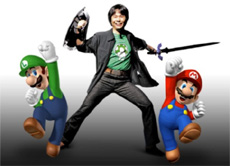 As if we didn’t all know, Nintendo is currently at the top of the heap in terms of the console wars of this generation. Not only are they kicking ass in terms of that market, they are also dominating worldwide in the handheld market. People are buying their products like hotcakes, and the execs are probably sleeping on their beds made of money and gold bars while they giggle themselves to sleep.
As if we didn’t all know, Nintendo is currently at the top of the heap in terms of the console wars of this generation. Not only are they kicking ass in terms of that market, they are also dominating worldwide in the handheld market. People are buying their products like hotcakes, and the execs are probably sleeping on their beds made of money and gold bars while they giggle themselves to sleep.
But it wasn’t always like this. While Nintendo is now once again synonymous with gaming, there was a time when the company struggled, hopped on its last leg, and then took a series of chances that have now put it back on top. Edge Online just did the first in a series of articles documenting Nintendo’s fall during the late 90’s, starting with the Nintendo 64 and some of the decisions that went into that.
It’s definitely an interesting read, and they talk specifically about the greatness of design in games like Mario 64. It’s worth pointing out that Nintendo seems to design consoles and products specifically around Miyamoto games (Nintendogs for the DS, Mario 64 for the N64, Wii Sports for the Wii), and it hasn’t always lead them to success.
What do you guys think of the article? How many of you remember Nintendo’s fall?
Source- Edge Online

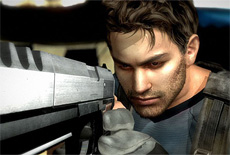 So this weekend, I played me a ton of Resident Evil 5. The co-op mode in particular is such a blast to play, especially the farther you progress. The game really does get more action-oriented the longer you play, which is wild considering that when it starts, you’re conserving your ammo like a mad man and trying to find loot under every rock and barrel you come across. It’s not long before you’re hording ridiculously power up-ed weapons and slaughtering the masses of infected zombie-people.
So this weekend, I played me a ton of Resident Evil 5. The co-op mode in particular is such a blast to play, especially the farther you progress. The game really does get more action-oriented the longer you play, which is wild considering that when it starts, you’re conserving your ammo like a mad man and trying to find loot under every rock and barrel you come across. It’s not long before you’re hording ridiculously power up-ed weapons and slaughtering the masses of infected zombie-people.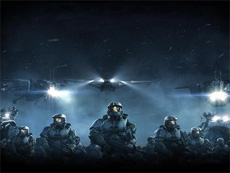 Halo Wars was first introduced back at X06 with all the hype and subtlety of a flash grenade blinding your senses. Since then, the FPS turned RTS game has seen numerous delays and revisions before finally hitting store shelves in March 2009. So, was it worth the wait? Did the game live up to the Halo brand? How well does this console RTS play? Let’s talk about that.
Halo Wars was first introduced back at X06 with all the hype and subtlety of a flash grenade blinding your senses. Since then, the FPS turned RTS game has seen numerous delays and revisions before finally hitting store shelves in March 2009. So, was it worth the wait? Did the game live up to the Halo brand? How well does this console RTS play? Let’s talk about that. Beyond Good and Evil was secretly one of the best games of last gen. Playing a lot like one of the more recent Zelda entries, it had an engrossing story, great writing and characters that you really cared about. It was easily in my top 5 games that I played on the PS2, which is a pretty solid list, if you ask me.
Beyond Good and Evil was secretly one of the best games of last gen. Playing a lot like one of the more recent Zelda entries, it had an engrossing story, great writing and characters that you really cared about. It was easily in my top 5 games that I played on the PS2, which is a pretty solid list, if you ask me.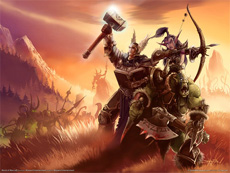 While you can’t fault a company for trying to make money (that is their purpose after all), I’m a tad miffed at hearing of the constant nickel-and-diming that is starting to pop up in the video games industry. I am all about paying for great content that is worth the money, but when I hear about EA having map packs and weapons for sale less than two weeks after Godfather II’s release, I’m annoyed.
While you can’t fault a company for trying to make money (that is their purpose after all), I’m a tad miffed at hearing of the constant nickel-and-diming that is starting to pop up in the video games industry. I am all about paying for great content that is worth the money, but when I hear about EA having map packs and weapons for sale less than two weeks after Godfather II’s release, I’m annoyed. When I was younger, reading a video game review in a new magazine or on a Web site was one of the most exciting experiences I could have as a gamer. To finally find out if the game I had been waiting for was worth playing was a moment of fear, excitement and trepidation. However, most of the joy has left this ritual in the last generation. Why is that? Because I already know that the score is going to be about 7.5 or above. It’s set in stone.
When I was younger, reading a video game review in a new magazine or on a Web site was one of the most exciting experiences I could have as a gamer. To finally find out if the game I had been waiting for was worth playing was a moment of fear, excitement and trepidation. However, most of the joy has left this ritual in the last generation. Why is that? Because I already know that the score is going to be about 7.5 or above. It’s set in stone. Yikes. While we tend to dissect a lot of other people’s lists a lot, we have established well and good that it is something that inherently is appealing to gamers. We live to tear other people’s gaming favorites apart and interject our own.
Yikes. While we tend to dissect a lot of other people’s lists a lot, we have established well and good that it is something that inherently is appealing to gamers. We live to tear other people’s gaming favorites apart and interject our own. 
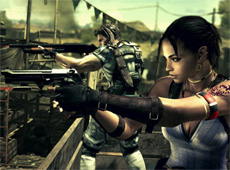 Over the last few days, I’ve been really kicking it into high gear on a few games so that I can start knocking them out. While I’ve been dabbling a little in several ventures, I really focused in on Resident Evil 5 and Halo Wars, both of which I tried out in co-op. And I have to say, both games are much more fun with someone else.
Over the last few days, I’ve been really kicking it into high gear on a few games so that I can start knocking them out. While I’ve been dabbling a little in several ventures, I really focused in on Resident Evil 5 and Halo Wars, both of which I tried out in co-op. And I have to say, both games are much more fun with someone else. 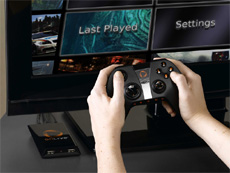 Last week, Warner announced the new micro-console, OnLive. As we all know, OnLive gets rid of the need for a console, as all of the hardware is actually taken care of through cloud servers, which play the game and send a video signal back to your TV. Well, opinions have sounded from gamers far and wide, and while many are skeptical, few doubt that this thing could have potential in the long term.
Last week, Warner announced the new micro-console, OnLive. As we all know, OnLive gets rid of the need for a console, as all of the hardware is actually taken care of through cloud servers, which play the game and send a video signal back to your TV. Well, opinions have sounded from gamers far and wide, and while many are skeptical, few doubt that this thing could have potential in the long term.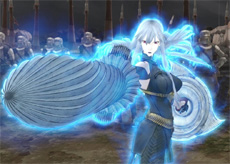 I’m in the middle of trying to finish way too many games right now. Currently, I’m doing a massive battle royale with Dead Rising, Valkyria Chronicles (still), Killzone 2, Resident Evil 5, Fallout 3 and Halo Wars. This was a bad move on my part, as now I’m nowhere near finishing all of these games. Actually, it’s been awhile since I’ve beat a game at all.
I’m in the middle of trying to finish way too many games right now. Currently, I’m doing a massive battle royale with Dead Rising, Valkyria Chronicles (still), Killzone 2, Resident Evil 5, Fallout 3 and Halo Wars. This was a bad move on my part, as now I’m nowhere near finishing all of these games. Actually, it’s been awhile since I’ve beat a game at all.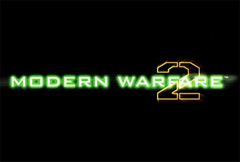 Well that didn’t take long. In case you’ve been under a rock all day, the first Modern Warfare 2 teaser debuted last night, giving us little to go on but sound clips, flashes of video and lots of green. Oh, we also got a release date.
Well that didn’t take long. In case you’ve been under a rock all day, the first Modern Warfare 2 teaser debuted last night, giving us little to go on but sound clips, flashes of video and lots of green. Oh, we also got a release date.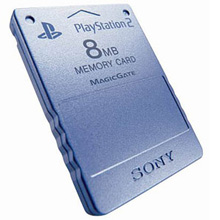 Last night, I turned on Civilization: Revolution to kick back and beat the game on a new difficulty level with a civilization I had never played before. I was shocked to learn that the game apparently thinks that I’ve only beaten the game once with the Germans, which happened to be my last play through. Basically, it’s deleted all records of the first 5 or 6 games I’ve played.
Last night, I turned on Civilization: Revolution to kick back and beat the game on a new difficulty level with a civilization I had never played before. I was shocked to learn that the game apparently thinks that I’ve only beaten the game once with the Germans, which happened to be my last play through. Basically, it’s deleted all records of the first 5 or 6 games I’ve played.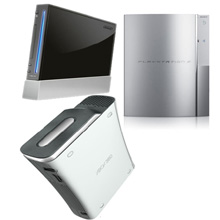 Could this be the last generation of consoles? Apparently, that’s what analyst Michael Pachter thinks, and it’s his job to come up with this kind of stuff, I guess.
Could this be the last generation of consoles? Apparently, that’s what analyst Michael Pachter thinks, and it’s his job to come up with this kind of stuff, I guess.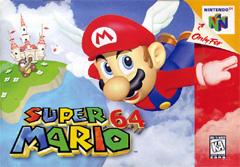 One of the defining moments in my life as a gamer happened at a locally owned video game store down the highway from my house. I remember I used to walk there every day, simply to see what used games I could pick up, or what new games they had on display. The owner even let you put in whatever you wanted so you could try it out right there.
One of the defining moments in my life as a gamer happened at a locally owned video game store down the highway from my house. I remember I used to walk there every day, simply to see what used games I could pick up, or what new games they had on display. The owner even let you put in whatever you wanted so you could try it out right there.  Ok, this is just one massive WTF bomb right here. After taking, I don’t know, about 4-5 years to make Resident Evil 5, Capcom said today that
Ok, this is just one massive WTF bomb right here. After taking, I don’t know, about 4-5 years to make Resident Evil 5, Capcom said today that 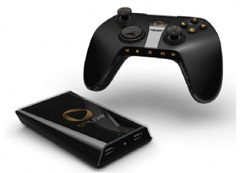 So, has the wave of the future arrived? Warner Bros. sure thinks so, as they presented the new micro-console, OnLive, at GDC with a huge freaking publicity splash. What makes OnLive so special? Well, perhaps the fact that it’s not technically a gaming console, but a small attachment for your TV or PC, rendering the “hardware arms race” obsolete.
So, has the wave of the future arrived? Warner Bros. sure thinks so, as they presented the new micro-console, OnLive, at GDC with a huge freaking publicity splash. What makes OnLive so special? Well, perhaps the fact that it’s not technically a gaming console, but a small attachment for your TV or PC, rendering the “hardware arms race” obsolete.